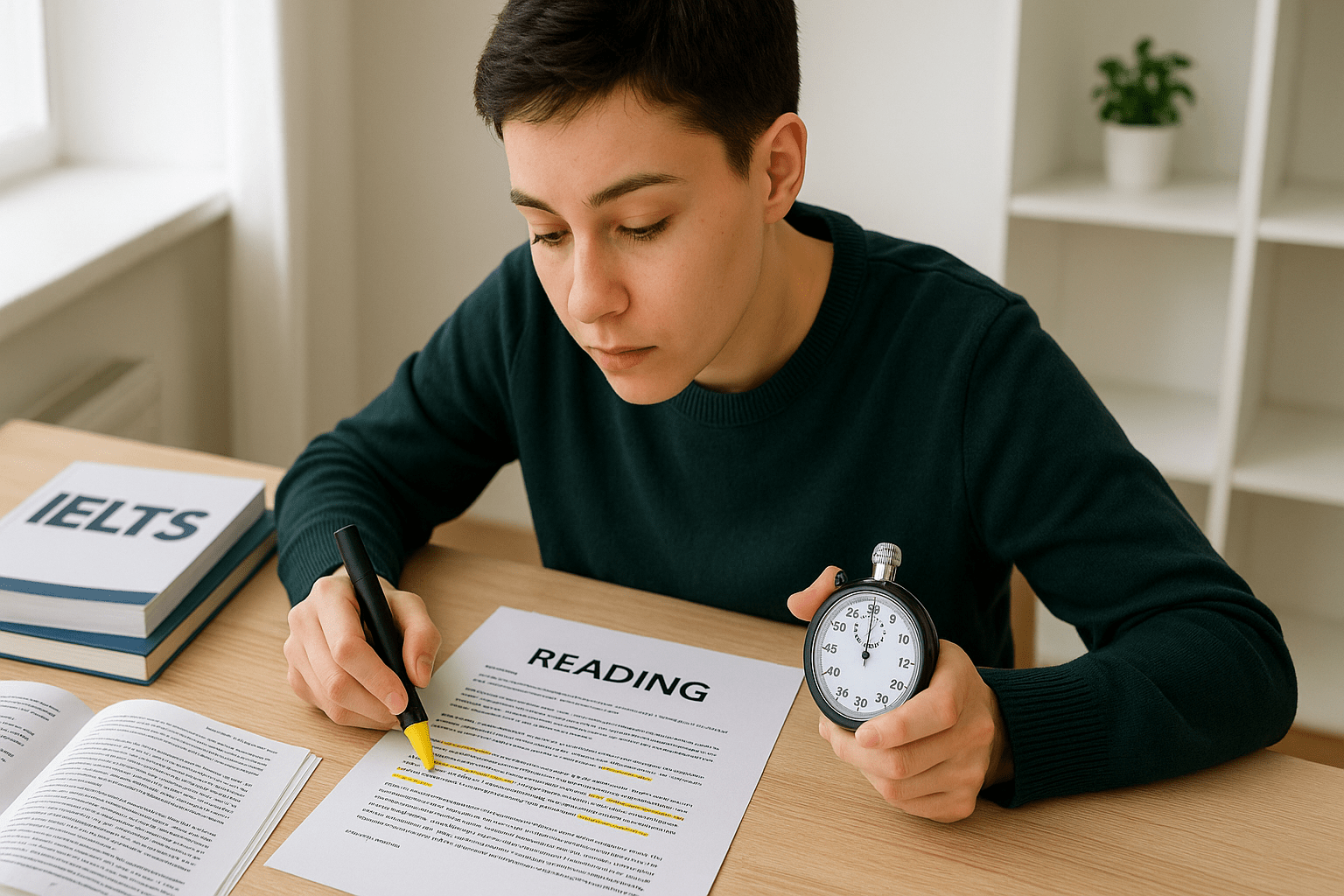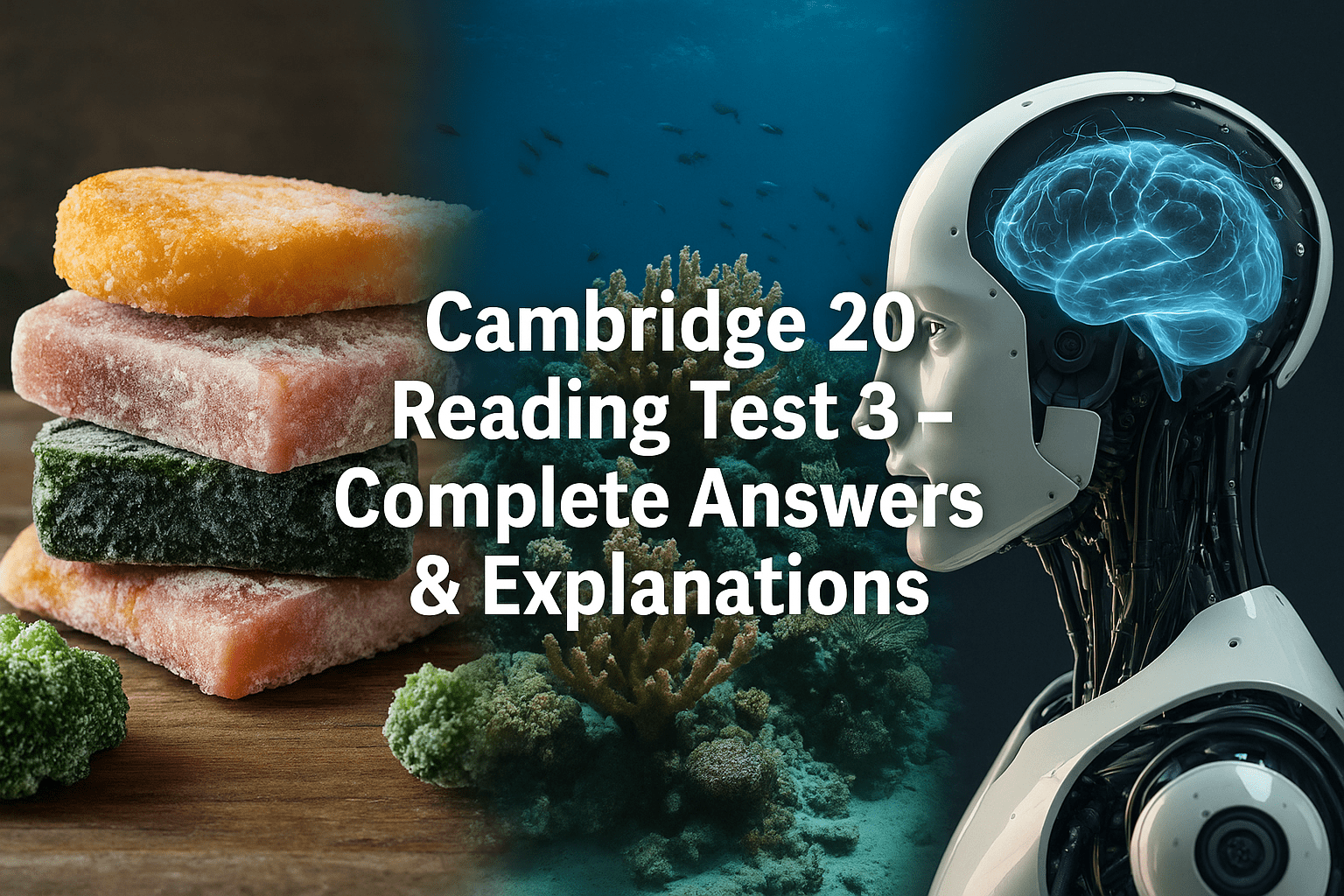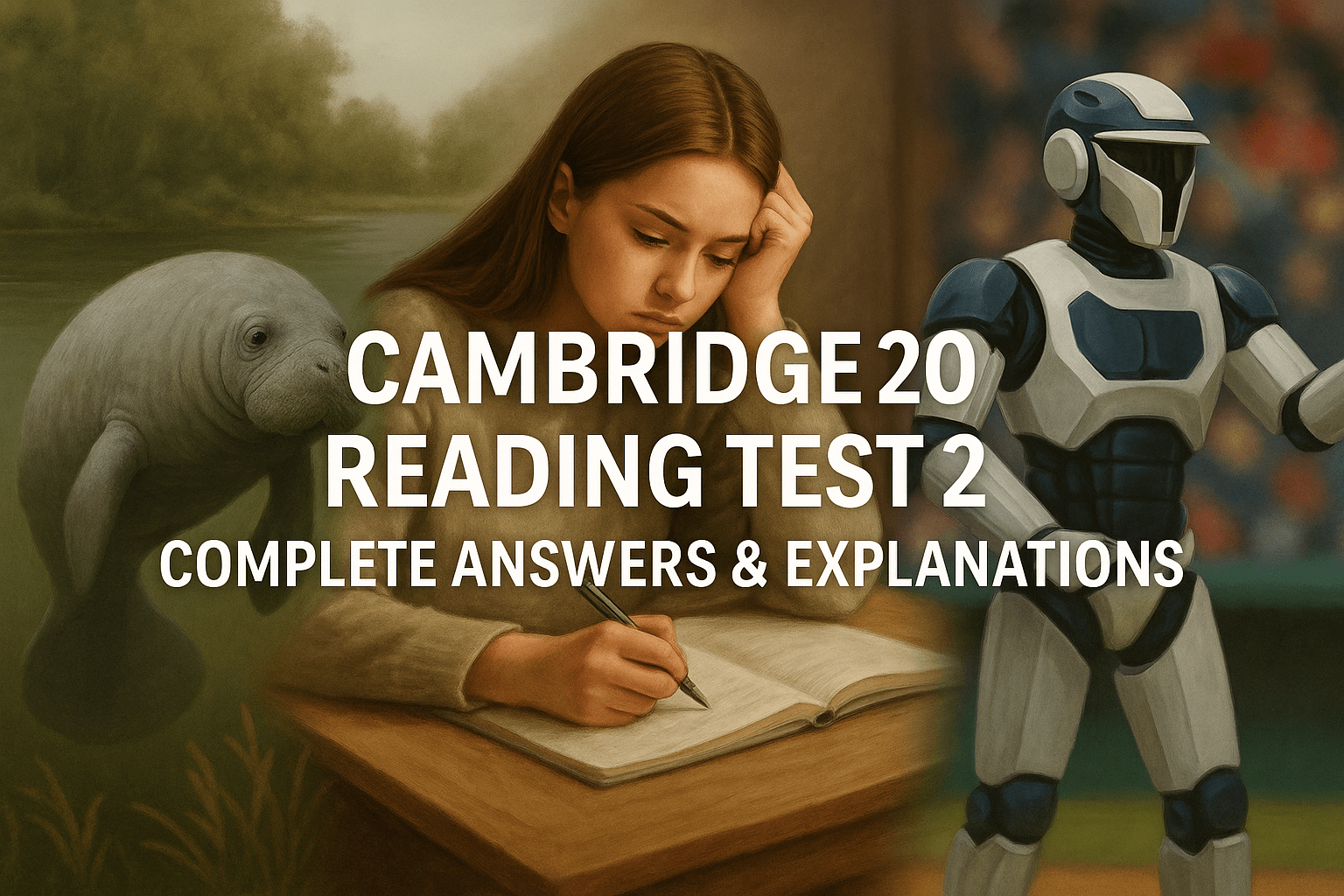- 🌟 Why IELTS Reading Skills Matter
- 1️⃣ Skimming in IELTS Reading: Spot Main Ideas Quickly
- 2️⃣ Scanning in IELTS Reading: Locate Answers in Seconds
- 3️⃣ Paraphrasing: The Secret to Correct Answers
- 4️⃣ Time Management: Finish 40 Questions in 60 Minutes
- 5️⃣ Dealing with Difficult Words
- 🌐 Complete IELTS Reading Strategy for Band 7–9
- Top 5 Common Mistakes to Avoid
- Final Checklist for Band 9 Success
- Frequently Asked Questions (FAQ)
- Conclusion
If you are aiming for a Band 7–9 in IELTS Reading, mastering three core skills—skimming, scanning, and paraphrasing—can make the difference between a good score and a great one. Over the years as a global IELTS trainer, I’ve guided thousands of students to boost their IELTS reading skills using a clear, practical approach. In this guide, I’ll share my step-by-step strategies to help you read faster, understand better, and answer accurately.
Before diving into techniques, let’s understand the goal: 40 questions, 60 minutes, 3 passages—your speed and accuracy must work together.
🌟 Why IELTS Reading Skills Matter
IELTS Reading is not just about knowing English; it’s about understanding exam strategy. Many candidates struggle because they read every word slowly or get lost in details. But in reality, you need to:
- Spot main ideas quickly (Skimming)
- Locate exact answers fast (Scanning)
- Recognize paraphrasing to avoid traps (Paraphrasing)
These three skills will allow you to answer confidently and finish the test on time. If you’re serious about achieving a Band 7–9, you need to master these techniques.
💡 Tip: Don’t read like a novel; read like a detective looking for clues.
For official test details, visit IELTS.org or British Council IELTS.
1️⃣ Skimming in IELTS Reading: Spot Main Ideas Quickly
Skimming is reading quickly to understand the main idea of a passage without focusing on every word. In IELTS Reading, each passage is long, and skimming saves time.
How to Skim Effectively
- Focus on key sections: Read the title, headings, first and last sentences of paragraphs.
- Look for repeated keywords: This helps you spot the topic.
- Ignore minor details: Your goal is the general idea, not examples.
Practical Exercise
- Pick a newspaper article.
- Give yourself 2 minutes to skim.
- Write a one-sentence summary.
Doing this daily will improve your reading speed and comprehension for the IELTS exam.
🎯 Pro Tip: Aim to skim each passage in 2–3 minutes. This leaves enough time for scanning and verifying answers.
2️⃣ Scanning in IELTS Reading: Locate Answers in Seconds
While skimming helps you understand the topic, scanning is how you find exact answers. Most IELTS questions give you clues in the form of keywords—names, numbers, dates, or unique terms.
Steps to Scan Like a Pro
- Underline keywords in the question.
- Search visually in the passage without reading word by word.
- Verify the surrounding text before choosing your answer.
Example
If the question says:
“In which year was the research conducted?”
You should scan for years (e.g., 1998, 2010) instead of reading every line.
For more strategies, explore our IELTS Reading Practice Tests.
3️⃣ Paraphrasing: The Secret to Correct Answers
Most IELTS Reading answers are hidden behind paraphrases. The test rarely repeats the exact words from the passage. If you miss this, you may choose a wrong option.
How to Master Paraphrasing
- Learn synonyms: e.g., increase → rise, boost, grow
- Identify reworded phrases: “People prefer tea” → “Tea is more popular than other drinks”
- Practice spotting differences: Match questions with the text by meaning, not exact words.
Quick Exercise
Take one Cambridge IELTS passage and highlight all synonyms or rephrased ideas. This single habit can dramatically improve your accuracy.
For more paraphrasing techniques, visit our IELTS Reading Guide.
4️⃣ Time Management: Finish 40 Questions in 60 Minutes
Even if your reading skills are strong, poor time management can hurt your score. Here’s a proven strategy I give my Band 8+ students:
- Passage 1 (Easy): 15 minutes
- Passage 2 (Medium): 20 minutes
- Passage 3 (Hardest): 25 minutes
⏰ Golden Rule: Never spend more than 1 minute per question on the first try. Mark it and come back later.
5️⃣ Dealing with Difficult Words
You are not allowed a dictionary in the IELTS Reading test. But that’s okay—native speakers don’t know every word either.
Strategies for Unknown Words:
- Guess from context: Look at surrounding sentences.
- Focus on logic: Even if one word is unknown, the sentence often gives clues.
- Skip and return later: Don’t get stuck; timing matters.
🌐 Complete IELTS Reading Strategy for Band 7–9
Here’s the full step-by-step method I teach:
- Skim the passage for 2–3 minutes.
- Underline keywords in the questions.
- Scan for those keywords or their paraphrases.
- Confirm answers using the surrounding sentence.
- Move quickly and manage time across all 3 passages.
Follow this method consistently during practice and your IELTS reading skills will improve rapidly.
Top 5 Common Mistakes to Avoid
- Reading every word slowly – You’ll run out of time.
- Ignoring instructions – E.g., writing more than “NO MORE THAN TWO WORDS.”
- Overthinking – The first logical answer is often correct.
- Not reviewing paraphrases – Exact word matching rarely works.
- Skipping practice under real timing – This leads to panic in the exam.
Final Checklist for Band 9 Success
Before your test, ask yourself:
- Can I skim a passage in 2 minutes?
- Can I scan and locate answers without reading all text?
- Do I recognize paraphrases and synonyms quickly?
- Can I finish 40 questions in 60 minutes?
If you answered yes to all, you’re on track for Band 7–9 in IELTS Reading!
Frequently Asked Questions (FAQ)
Q1: How can I improve my IELTS reading skills quickly?
Practice skimming, scanning, and paraphrasing daily. Use official IELTS practice tests to track progress.
Q2: Should I read the entire passage word by word?
No. Skim for main ideas first, then scan for keywords to locate answers.
Q3: How do I deal with unknown vocabulary in the test?
Use context to guess meaning. Don’t waste time on every word; focus on the sentence meaning.
Q4: How many correct answers do I need for Band 7 or 8?
Typically, 30–32 for Band 7 and 35–36 for Band 8, depending on the test version.
Q5: Which IELTS Reading test is easier, Academic or General Training?
General Training has simpler texts, but the scoring is stricter. Academic requires handling complex passages.
Conclusion
Mastering IELTS reading skills is not just about English level; it’s about smart strategy. By combining skimming, scanning, and paraphrasing with effective time management, you can confidently reach Band 7–9. Practice consistently, avoid common mistakes, and use official tests to simulate real conditions.
Now, grab a practice test and try these techniques—I promise, your reading speed and accuracy will surprise you!






49 Responses